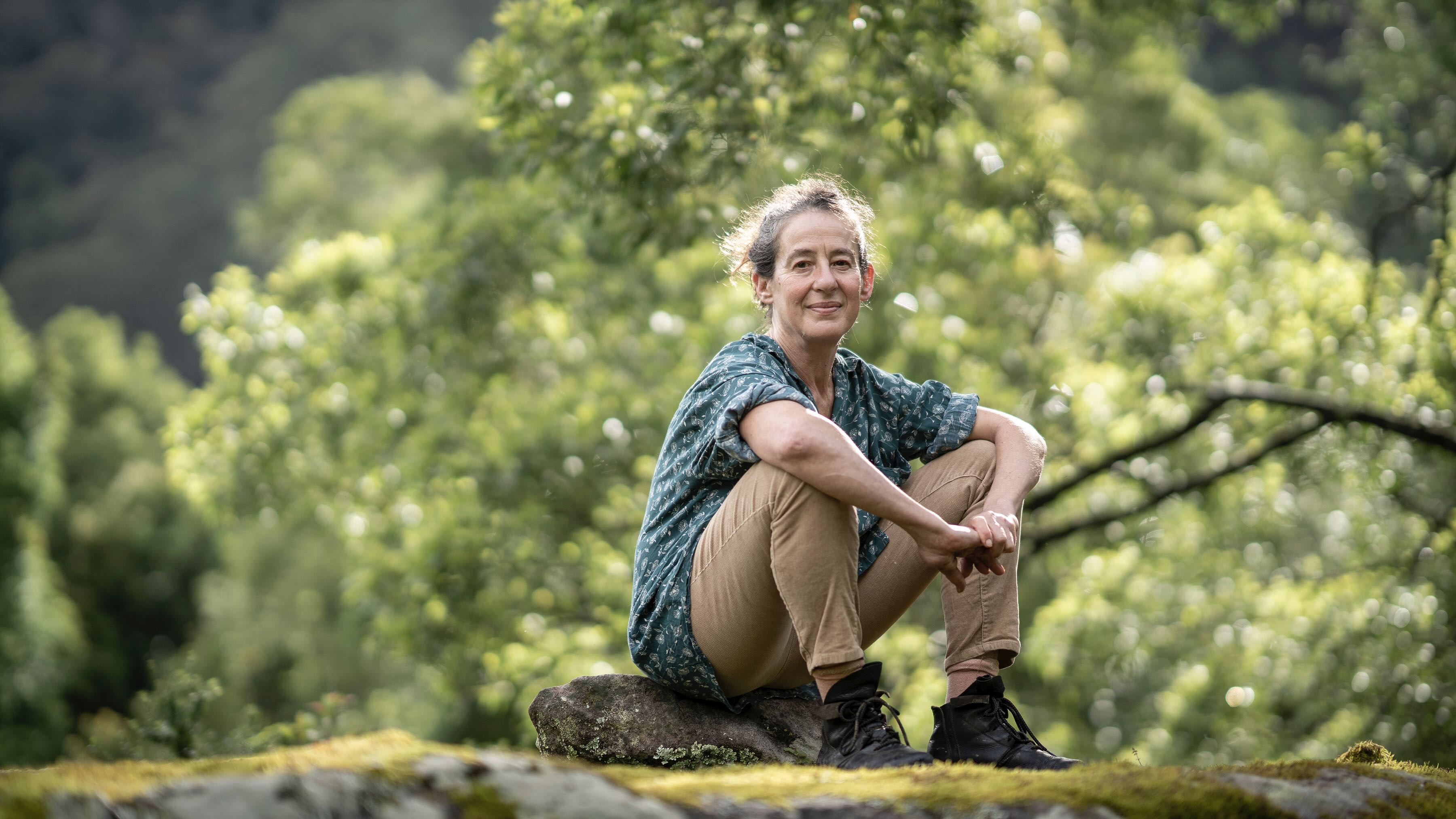
9, May 2023
Studying the effects of Nature on the Board. An interview with Professor Danielle Celermajer.
Alongside "But what about the profits?", the other question we always get asked about Nature on the Board is “So what’s actually changed?”
And that depends on how you want to define change.
The story goes that in 1934, Lettie Pate Whitehead became the first woman to serve on the board of a major corporation (Coca Cola). In all likelihood the same question was asked then. ‘So what’s changed?’ Of course I have no idea how she voted or what she voted on, but the biggest change must be that she voted at all.
On a macro level, the same is true of Nature being made a director of Faith In Nature. Giving Nature a voice and a vote is the change. This is a line in the corporate sand that declares Nature has inalienable rights and those rights must be taken into account in businesses’ decision making processes.
Still, the question needs to be answered on a micro level too. And while we can (and will!) give you anecdotal insights into all the changes we’ve seen, a more rigorous approach is also necessary — one that is independent and objective. Which is why we're so happy to share that you don’t just have to take our word for it.
The University of Sydney's Sydney Environment Institute is conducting a two year research program into the effects of Faith In Nature’s decision to appoint Nature to its board.
Lead by philosopher, author and Professor of Multispecies Justice, Danielle Celermajer, the study aims to establish exactly what’s changed — on all levels from the macro to the micro.
We caught up with Dany to find out a little more about her and her fascinating work.
What’s your background and how did you come to be doing what you’re doing today?
Although it may not seem particularly pertinent, I often start my answer to questions like these by saying that I am the child of survivors of the Shoah. I say that, because it was this early experience of being born into a world where there had been so much violence, loss and injustice that gave me my ethical compass and my professional aspirations. I started my professional and academic life working in human rights, which at that time I thought was the most universal form of justice. Over time though, and in large part as I confronted the ecological crisis we are in, I came to understand that human rights were too narrow a frame, because their ethical concern ends at the edge of humans. At a certain point, this started to occur to me as unsupportable and nonsensical. Unsupportable because beings other than humans are also subjects of a life, or subjects who have experiences (albeit radically different to that of humans). Nonsensical because as has long been obvious for First Nations peoples, but all of us are now waking up to, there can be no human good or human flourishing without the flourishing of the more-than-human world.
What is ‘multispecies justice’?
It is a theory of justice that includes not only the interests of all humans but of the more-than-human, such as other animals, plants, forests, rivers and ecological systems. Taking their interests seriously as ‘justice claims’ means there is a moral and political obligation for the basic institutions of society — including our political and legal systems — to take those interests into account when making decisions. They cannot be dismissed simply because they are inconvenient or costly (for certain humans), and attending to them is not a matter of charity or generosity.
If the destruction of the earth and its beings is to be halted, something more than new systems, different economies and better technologies is needed. We (and by that I don’t mean all humans, because for some, like Indigenous peoples this is already the case) need to start to relate to other earth beings as subjects of justice, subjects who can be unjustly harmed and to whom obligations of care and respect are owed. This does not mean that there are not vast differences amongst different earth beings. This is not about saying humans and trees are the same; we still need to recognize and respect the very different ways of being, and the very different interests. Multispecies justice invites humans to reposition ourselves not as over and above the earth and its beings, but as embedded in relationships that nourish and sustain us and that we must also nourish and sustain.
Can you tell us a little about your book, Summertime? (Published in Australia in 2021, set to be published in the UK in June, 2023)
I wrote the first pieces that became Summertime during the black summer fires in 2019–2020 in Australia. I live as part of an intentional multispecies community and we, along with so many others, were directly threatened by those fires, and in fact one of our residents, Katy, a pig, was killed. The experience had me confront the reality of the climate catastrophe with a concreteness and embodied quality it had not had for me before. Yes, I thought I knew, but somehow, I still held climate change as something that would happen to someone else, sometime else, and somewhere else — whereas it was us, here, now. I felt a sense of urgency about conveying that to others in a way they might grasp and then of course act on. At the same time, living so intimately with beings other than humans, I had a very direct experience of how the fires occurred to an effected them. Summertime is my attempt to convey to other humans this all important recognition — that others are also having meaningful and emotional experiences of climate change. They are not simply objects of suffering; they are subjects who are feeling and making sense of the slow and fast violence taking apart their worlds.

Regarding Nature on the Board, what drew you to want to study its implementation at Faith In Nature?
Multispecies justice requires that beings other than humans, or the more-than-human be treated, politically, legally, and culturally, as subjects of justice and not merely objects of human laws. One of the problems with existing laws that purports to protect the environment or other animals is that these more-than-human others are generally held as what we call ‘moral patients’, or even worse, as beings that may, depending on human interests, place certain- usually minimal — limits on human actions. In practice, those limits are almost always trumped by even trivial and short-term human interests. To be a subject of justice means having a say in what happens, having a voice. Imagine that we thought that justice for women could be achieved by a bunch of men sitting around deciding on women’s interests and debating to what extent they ought to be recognised. This though, is the status quo situation for the more-than-human, and legally, politically and ethically it has been considered sufficient. Nature on the Board is one form of encoding and institutionalising the recognition of other beings as subjects of justice.
How did you hear about the move?
I had been speaking about my interest in Nature on the Board with a colleague I met at a conference, who told me about Lawyers for Nature and suggested I set up a call with Brontie Ansell. She told me, confidentially that these transformative moves at Faith were happening and I was extremely excited. The idea that we could actually witness and carefully track how this idea was worked out in practice was one I was terribly enthusiastic about by. It is a real privilege to be able to document this unfolding.
Do you have a hypothesis of what you expect to find? Or is this research purely exploratory?
No, we don’t have a hypothesis. This is a radical idea and what I particularly love about the Faith In Nature approach is that you also understand that you are — as I put it — rebuilding the ship at sea. Given the way in which the more-than-human has been systematically silenced and excluded in mainstream Western institutions, finding a way to include other beings is going to take the willingness to be creative and experimental.
Obviously this is happening in the UK and gaining traction. Is this something you could see happening in Australia? Elsewhere?
Yes! I think there is a real hunger amongst many people to work out how to transform our institutions in ways that will actually deliver better outcomes for the more-than-human world. Yes, there is still large-scale denial of the extent and gravity of the ecological and climate crises, but for many, it is impossible to ignore. I’ve spoken with many people who find this idea intriguing. At the same time, there are so many questions and it represents such a radical shift. This is why careful documentation and research that can support learning how to do this is so critical.
Is there anything else you’d like to share?
When I think about a process like Nature on the Board, what seems critical to me is an openness to what emerges. One of the pathologies with the dominant Western way of being that has become so normalised is this obsession with control and domination. One of my great learnings living with others is that they surprise me, teach me, introduce me to ways of being and relating, thinking and feeling and doing, that I had not imagined. Bringing Nature into a conversation or into shaping the institution then means that Nature or the more-than-human can have a real influence on the conversation and on the institutional form. That might seem frightening or threatening, but for me, it is such a relief. One of the many names that has been given to this era is the Eremocene — the Age of Loneliness. Humans in our culture have for so long cut ourselves off, or tried to do so, because we perhaps had a fantasy that separation and domination were the paths to success and safety. Not only are they the paths to violence and the destruction of the support systems of life; they are also paths to a deep alienation from this, our earthly home. So opening the door again might seem like exposure, but I experience it as friendship and homecoming.

From our side too, it is equally exciting and a privilege to have Dany and her team taking an interest in our work. I trust that in years to come, it will provide the foundations of a thorough response to the question of “So what’s actually changed?”



